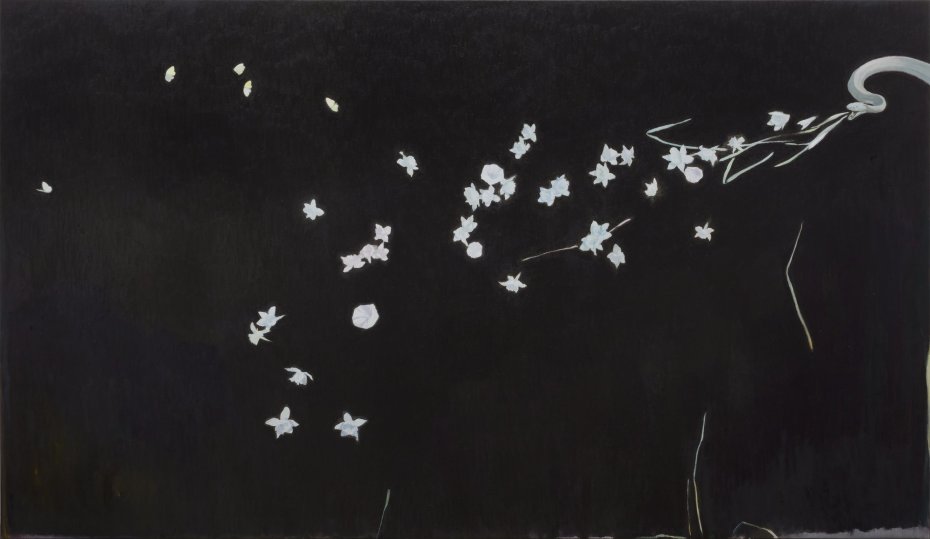If you will it, it is not a dream
Annet Gelink Gallery proudly presents a summer show with works by Yael Bartana, Alicia Framis, Ryan Gander, Meiro Koizumi, Erik van Lieshout, David Maljkovic, Wilfredo Prieto and Glenn Sorensen. The exhibition If you will it, it is not a dream - after the neon by Yael Bartana - celebrates the power of the human mind; our idealism, our ability to dream, to imagine and to envision different realities.
The works on view, whether it's political utopias (Bartana's 'Jewish Renaissance Movement in Poland'), fictional faraway fields (Framis' Departures) or more abstract works like Gander's Remorse in Black and Black, make you think about coincidences, untold stories and parallel realities - they trigger the imagination.
On entering the gallery space, the viewer encounters Glenn Sorensen's Songbird and Wilfredo Prieto's Hero. The work Songbird by Glenn Sorensen conceals more than it shows, despite the minute attention to detail. The painting breathes an atmosphere of tranquillity, which prevents the viewer from reaching unambiguous conclusions. In front of it stands an empty vertical glass case about the height of an average man, Prieto's Hero. As we stand before it our own reflection makes us the object of display - perhaps alluding to our own hero-potential. At the same time the work also addresses society's preoccupation with showcasing its heroes - which is even a recurring theme in popular comics like Spiderman.
On the back wall, Erik van Lieshout's large scale Mother + Sister shows elements of his mother's life as a social worker in Africa, where she rubs and massages the hands and feet of African women. The drawing, executed in bold black lines, shows scenes that are also a part of Van Lieshout's film Ego, which is currently on view at the Venice Biennale. In Ego the artist portrays his family, who are all social workers. The film centres on the question why people do something for each other, delving into the idealism that is at play.
In her Shrines triptych, Yael Bartana addresses the sprits of pioneers Sigmund Freud and Theodor Herzl, who in different approaches sought to bring redemption to the individual and to the collective. She has declared them the spiritual gods of the Jewish Renaissance Movement in Poland (JRMiP), which she initiated in 2007. Interestingly, the founder of modern psychoanalysis and the visionary of a state for Jews lived just a couple of houses away from each other on Berggasse in Vienna, yet their paths never crossed.
Alicia Framis' Departures work recalls the scene of a departure hall. Instead of the usual flights, you can board a plane to Airhaven; Metropolis, Cloud City or Shangri-La. Framis' work refers to a diverse range of both utopian as dystopian destinations, which she collected from novels, comic books, films and the history of architecture. Presenting a plethora of parallel realities, Departures lets us ponder the present we find ourselves in.
The group show continues in the bakery, which has been turned into a black box where people can watch Meiro Koizumi's Double Projection (2013). Koizumi's work deals with the power and complexity of the human being. We see the protagonist, an old Japanese man, struggling to face his own past, which is enveloped by guilt. There is a tension at work between the man's recollections of his own traumatic past, and the manner in which he is being scripted by Koizumi to talk about this. This tension creates an intriguing border between fact and fiction.
In a show where black and white prevails, colour is everywhere.

